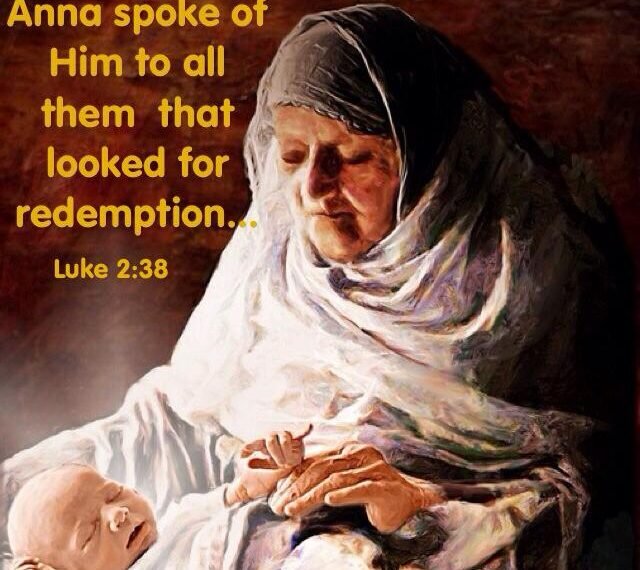Table of Contents
by John MacArthur
Scripture wasn’t written carelessly. There are no throwaway verses and no filler. Every word was inspired by the Holy Spirit (2 Timothy 3:16), free from error (cf. Titus 1:2), and profitable for the people of God. It’s all divinely intended for our spiritual growth.
That means God included even minor characters like Anna for His purposes and our benefit. And while she only appears in three verses in Luke’s gospel (Luke 2:36-38), her presence is not an accident. There is something we’re meant to learn from her example. And by digging into the sparse details Scripture provides, we can uncover some surprising insight into the life of this faithful servant.
Luke introduced her this way: “There was one, Anna, a prophetess” (Luke 2:36 NKJV). Her name in Hebrew is identical to “Hannah.” The name means “grace”—an appropriate name for a godly, dignified woman. Anna’s character bears striking similarities to her Old Testament namesake, Samuel’s mother, Hannah. Both women were singled out for their practice of prayer and fasting. Both were perfectly at home in the temple. Both prophesied. In Hannah’s case, her celebratory prayer (1 Samuel 2:1–10) was also a prophetic psalm about the Messiah. Anna is said to be a prophetess whose heart was prepared for the coming of the Messiah.
1 A Surprising Job Description
What did Luke mean by prophetess? He was not suggesting that Anna predicted the future. She was not a fortune-teller. He didn’t necessarily even suggest that she received special revelation from God. The word prophetess simply designated a woman who spoke the Word of God.
Anna may have been a teacher of the Old Testament to other women. Or she may have simply had a private ministry there in the temple offering words of encouragement and instruction from the Hebrew Scriptures to other women who came to worship. Nothing suggests that she was a source of revelation, or that any special revelation ever came to her directly. Even her realization that Jesus was the Messiah seemed to have come from the revelation given to Simeon and subsequently overheard by her. She is nonetheless called a prophetess because it was her habit to declare the truth of God’s Word to others. This gift for proclaiming God’s truth ultimately played a major role in the ministry she is still best remembered for.
In all the Old Testament, only five women are ever referred to as “prophetess.” The first was Miriam, Moses’ sister, identified as a prophetess in Exodus 15:20, where she led the women of Israel in a psalm of praise to God about the drowning of Pharaoh and his army. The simple one-stanza psalm Miriam sang was the substance of her only recorded prophecy (v. 21). The fact that God had once spoken through her, unfortunately, later became an occasion for pride and rebellion (Numbers 12:1–2), and the Lord disciplined her for that sin by temporarily smiting her with leprosy (vv. 9–15).
In Judges 4:4, we are introduced to the second woman in the Old Testament designated as a prophetess: “Deborah, a prophetess, the wife of Lapidoth” (Judges 4:4 NKJV). She was the only female among the varied assortment of judges who led the Jewish people before the monarchy was established in Israel. In fact, she was the only woman in all of Scripture who ever held that kind of leadership position and was blessed for it. The Lord seemed to raise her up as a rebuke to the men of her generation who were paralyzed by fear. She saw herself not as a usurper of men, but as a woman who functioned in a maternal capacity, while men like Barak were being raised up to step into their proper roles of leadership (Judges 5:12). That’s why she referred to herself as “a mother in Israel” (v. 7 NKJV). She gave instructions to Barak from the Lord (Judges 4:6), so it seems she received revelation from God, at least on that one occasion.
In 2 Kings 22:14, Scripture mentions Huldah as a prophetess. In verses 15–20, she had a word from the Lord for Hilkiah the priest and others. Nothing about her, or her background, is known. In fact, she is mentioned only here and in a parallel passage in 2 Chronicles 34:22–28.
The only two other women called prophetesses in the Old Testament were an otherwise unknown woman named Noadiah (Nehemiah 6:14), who was classified among the false prophets; and Isaiah’s wife (Isaiah 8:3), who was called a prophetess only because she was married to Isaiah, not because she herself prophesied (unless her decision to name her son “Maher-Shalal-Hash-Baz” could be counted as a prophecy).
Rarely did God speak to his people through women, and never did any woman have an ongoing prophetic ministry similar to that of Elijah, Isaiah, or any of the other key Old Testament prophets. In other words, there is nothing anywhere in Scripture to indicate that any women ever held a prophetic office. The idea that “prophetess” was a technical term for an official position or an ongoing ministry of direct revelation is simply nowhere to be found in Scripture.
Luke’s identification of Anna as a “prophetess,” therefore, did not necessarily mean that she personally received divine revelation. When Luke called her a “prophetess,” we are not to imagine that this was an office she filled. Most likely, it meant that she had a reputation as a gifted teacher of other women and a faithful encourager of her fellow worshipers in the temple. When she spoke, it was about the Word of God. She had evidently spent a lifetime hiding God’s Word in her heart. Naturally, that was the substance of what she usually had to say. So when Luke called her a “prophetess,” he gave insight into her character and a clue about what occupied her mind and her conversation.
2 A Surprising Background
Anna is further identified as “the daughter of Phanuel, of the tribe of Asher” (Luke 2:36 NKJV). Her heritage is given because it was rather unusual. Asher was the eighth son of Jacob. He was the offspring of Zilpah, Leah’s maid and Jacob’s concubine (Genesis 30:12–13). The tribe that descended from Asher belonged to the apostate northern kingdom of Israel.
If you remember Old Testament history, you know that the kingdom split after Solomon’s time. The ten tribes in the north formed an independent nation, with their own king (who was not the rightful heir to David’s throne, but a usurper). From then on, in the Old Testament, the name “Israel” applied to the apostate northern kingdom. The southern kingdom took the name “Judah.” (That was because Judah was by far the larger of the two remaining tribes in the south—the other one being Benjamin.)
The southern kingdom remained loyal to the Davidic throne. Of course, the city of Jerusalem lay in the heart of the southern kingdom close to the border between Judah and Benjamin. The temple there was still the only place where the true priesthood could offer sacrifices. A few faithful Israelites from each of the ten tribes migrated south so that they weren’t cut off from the temple, but in doing so, they gave up their family lands and their inheritance.
Judah and Israel remained independent from one another for generations. At times they were uneasy allies. Most of the time, however, their kings were bitter rivals. Apostasy and idolatry plagued both nations continually. Prophets were sent by God to warn the northern as well as the southern tribes about their spiritual decline, but the prophets were mostly spurned on both sides of the border. Evil kings sat on both thrones. Judah had a few good and godly kings in the mix, but every one of the kings of Israel was evil.
Naturally, apostate Israel built new places of worship and established an alternative priesthood. That quickly led to the total corruption of the Jewish religion in the northern kingdom. Ever more sinister forms of paganism saturated the culture. Finally, in 722 BC, the Assyrians conquered the ten northern tribes and took most of the people into captivity. Only a handful ever returned.
Anna’s descent from the tribe of Asher suggests that her heritage owed much to God’s grace. Her ancestors had either migrated south before the Assyrian conquest of Israel, or they were among the small and scattered group of exiles who returned from captivity. Either way, she was part of the believing remnant from the northern kingdom, and she was therefore a living emblem of God’s faithfulness to His people.
Through His sovereign plan, God had prepared Anna—through her national heritage and her personal devotion—to be a witness of Christ in His infancy. Through hundreds of years of ancestry and a lifetime of faithful service, the Lord was about to bring her face-to-face with His Son, and set her on an evangelistic mission that would define the rest of her life and cement her reputation in God’s kingdom.
We’ll look at that part of her story next time.

by John MacArthur







